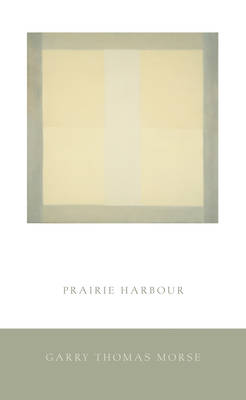
- Afhalen na 1 uur in een winkel met voorraad
- Gratis thuislevering in België vanaf € 30
- Ruim aanbod met 7 miljoen producten
- Afhalen na 1 uur in een winkel met voorraad
- Gratis thuislevering in België vanaf € 30
- Ruim aanbod met 7 miljoen producten
Omschrijving
In this contrapuntal follow-up to Governor General's Award finalist Discovery Passages, Garry Thomas Morse traces multiple lines of his mixed ancestry. These include the nomadic "pre-historical" movements of Wakashan speakers who were later to form various West Coast First Nations; the schismatic mindset of Jedidiah Morse, the "father of American geography"; and eternal struggles of European Jewish relations, artists, and close friends against perennial anti-Semitism. Set around the vigilantly maintained border/lines that mark the relatively "unsung" decline of natural prairie life, this unromantic "wrecklogue" radiates outward from a new real-estate development in Regina, Saskatchewan.
The first section, "Company Romance," is a sequence of sardonic "heritage minute" poems that examine the intensely aggressive capitalist aspects of colonization that drove the fur trade in Manitoba and deeply influenced our contemporary sense of cultural and national identity. They also draw parallels between the shift in nomadic hunter/warrior culture to our own transformation as global consumers. The second part, "Prairie Harbour," a long poem in twenty-four parts, takes the form of postexilic elegies that transcend the dominant tradition of Canadian prairie poetry, infusing it with epical echoes of poets John Clare, Charles Olson, Louis Zukofsky, and William Carlos Williams. The work reaches its stride in a hearing of the Regina Symphony Orchestra's performance of Gustave Mahler's Fifth Symphony, which includes a French horn of warning for the "have-not" province. The finale offers aesthetic fragmentation of Stephane Mallarmé's Un Coup de Dés and "The Untroubled Mind," a poem by Saskatchewan-born abstract expressionist Agnes Martin, salvaging space for an inner landscape and a "harbour" for the mind.Specificaties
Betrokkenen
- Auteur(s):
- Uitgeverij:
Inhoud
- Aantal bladzijden:
- 176
- Taal:
- Engels
Eigenschappen
- Productcode (EAN):
- 9780889229402
- Verschijningsdatum:
- 3/11/2015
- Uitvoering:
- Paperback
- Formaat:
- Trade paperback (VS)
- Afmetingen:
- 150 mm x 246 mm
- Gewicht:
- 294 g

Alleen bij Standaard Boekhandel
Beoordelingen
We publiceren alleen reviews die voldoen aan de voorwaarden voor reviews. Bekijk onze voorwaarden voor reviews.











